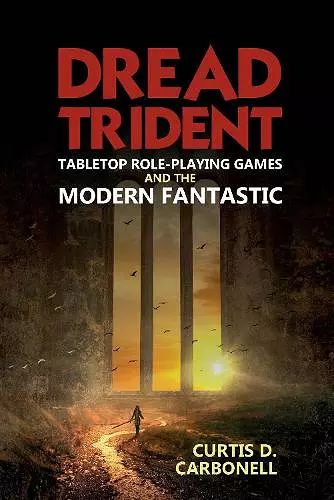Dread Trident
Tabletop Role-Playing Games and the Modern Fantastic
Format:Hardback
Publisher:Liverpool University Press
Published:27th Nov '19
Should be back in stock very soon

Dread Trident examines the rise of imaginary worlds in tabletop role-playing games (TRPGs), such as Dungeons and Dragons. With the combination of analog and digital mechanisms, from traditional books to the internet, new ways of engaging the fantastic have become increasingly realized in recent years, and this book seeks an understanding of this phenomenon within the discourses of trans- and posthumanism, as well as within a gameist mode.
The book explores a number of case studies of foundational TRPGs. Dungeons and Dragons provides an illustration of pulp-driven fantasy, particularly in the way it harmonizes its many campaign settings into a functional multiverse. It also acts as a supreme example of depth within its archive of official and unofficial published material, stretching back four decades. Warhammer 40k and the Worlds of Darkness present an interesting dialogue between Gothic and science-fantasy elements. The Mythos of HP Lovecraft also features prominently in the book as an example of a realized world that spans the literary and gameist modes.
Realized fantasy worlds are becoming ever more popular as a way of experiencing a touch of the magical within modern life. Reworking Northrop Frye’s definition of irony, Dread Trident theorizes an ironic understanding of this process and in particular of its embodied forms.
'Dread Trident sets a novel and rewarding precedent for future research that melds literature studies and game studies... [It] is an impressive investigation into embodiment, play, and posthumanism, in order to synthesize previously understudied connections at work in TRPGs. Carbonell expertly moves between fields of study, from discussions of transhumanism and posthumanism, to literary theory, to game studies, and even between genres even within analog games.'
Adrianna Burton, Analog Game Studies
‘Dread Trident offers a theoretically rigorous and informative exploration of its focal gametexts and the use of game archives to critically explore how the modern fantastic as a genre evolves in them over time. Carbonell’s approach to theorizing these gametexts as using digital and analogue tools to generate realized worlds… is innovative and compelling.’
Clare Wall, SFRA Review
ISBN: 9781789620573
Dimensions: unknown
Weight: unknown
258 pages